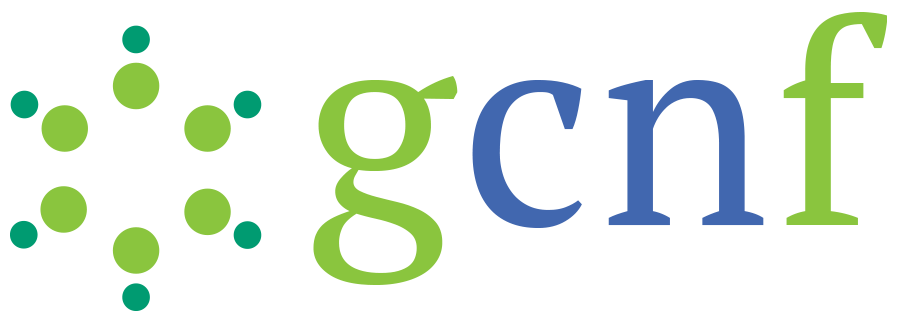A Network with a Mission
The issues of hunger, education, and economic development can no longer be viewed and addressed in isolation of each other. In supporting regional networks, GCNF brings together leaders from governments, businesses, and nonprofits around the world to connect these issues and co-create stronger, more coordinated strategies for addressing them.

GOVERNMENTS
Building the capacity of governments around the world to implement national school meal programs.

BUSINESSES
Engaging businesses to strengthen supply chains and increase political will for school meal programs.

PARTNER NGOs
Working in coordination, not competition, with partners to raise awareness and support for school meal programs.

PRACTITIONERS
Connecting school meal leaders to resources and strategies for robust, safe, sustainable programs.
Supporting Regional Networks
As part of our commitment to sustainability and local ownership, GCNF also encourages and supports the development of independent regional networks. We are proud to have worked with the following regional networks:
Local and National Governments
MINISTERS OF FINANCE, EDUCATION, AGRICULTURE AND THEIR STAFF MEMBERS; STATE, PROVINCIAL, OR REGIONAL OFFICIALS AND THEIR STAFF; CITY AND DISTRICT OFFICIALS AND THEIR STAFF
Government leaders find new strategies to increase political support and implement enabling policies for locally-sourced school meal programs. Through GCNF, they can also share approaches to engaging new business partners in supplying growing programs. Some of the additional Governments participating in the GCNF regional networks include Armenia, Bhutan, Botswana, Brazil, Burkina Faso, Burundi, Guinea Bissau, Indonesia, Italy, Jordan, Kenya, Kyrgyzstan, Lao PDR, Lesotho, Madagascar, Malawi, Mali, Morocco, Mozambique, Republic of Congo, Russian Federation, Senegal, South Africa, Sri Lanka, Sudan, The Gambia, Togo, Tunisia, Uganda, United States, and Zambia.
- By working through the GCNF network, local and national governments have access to:
- Strategies and measurement tools for creating jobs through local school feeding programs,
- Successful models in other countries facing similar challenges to their own in areas of financing, agricultural, job creation, and transportation,
- Strategies for inter-government coordination between departments and ministries such as education, health, and finance,
- Support for working with the private sector, ranging from local farmers to international companies,
- Models and tools for ensuring food quality and safety, including access to certified food quality and safety auditors,
- Models for reducing food waste and for growing, preparing, and storing food in new ways.
To learn more about how the GCNF network can help you meet your goals, see resources, events, or contact us at info@gcnf.org.
Businesses
NATIONAL AND GLOBAL COMPANIES SEEKING NEW MARKETS THROUGH COMMERCIAL INTERESTS AND SOCIAL RESPONSIBILITY, REGIONAL SUPPLY CHAIN PARTNERS, LOCAL FARMERS
Local, national and international businesses can play a powerful role in strengthening the school feeding programs in developing markets. Through GCNF, they can build new relationships with government leaders and access strategies for mitigating risks. Business participating in GCNF regional networks have included Tetra Laval, DSM Nutritional Products, American Peanut Council, SOZO Foods, American Soybean Association, Edesia, Cargill, DuPont, Future Life Health Products, Kraft Heinz, American Beverage Association, Nascent Solutions Inc., and National Restaurant Association.
By working through the GCNF network, private sector members have access to:
- Introductions to government leaders and strategies for working with local and regional governments,
- Strategies for informing the development of new products and new markets related to school feeding,
- Cultural translation for working in new countries and with new sectors (e.g. local tastes, taboos, cultural considerations),
- Best practices for risk management, and
- Connection with other companies to share information on logistical items such as price point, shelf life, and packaging.
To learn more about how the GCNF network can help you meet your goals, see resources, events, or contact us at info@gcnf.org.
Partner NGOs
GLOBAL NON-GOVERNMENTAL ORGANIZATIONS, INTERNATIONAL DEVELOPMENT ORGANIZATIONS, SCHOOLS AND UNIVERSITIES
Around the world, nonprofits, foundations, NGOs and international development organizations are working to address hunger and education. GCNF provides a platform for the field to increase impact by facilitating coordination and partnerships. Other field leaders participating in the GCNF network have included The Bill & Melinda Gates Foundation, Catholic Relief Services, Counterpart International, Inc., the Food and Agriculture Organization of the United Nations, the National Fund for Educational Development (Brazil), the International Food Policy Research Institute, Joint Aid Management, the Lula Institute, Mary’s Meals, the Partnership for Child Development at Imperial College London, Share Our Strength, SNV, the Tiger Brands Foundation, the U.S. Department of Agriculture, the World Bank, the World Food Program, the WFP Centre for Excellence in Brazil, WFP USA, and World Health Organization.
GCNF is one among many dedicated and important organizations working to support school feeding around the world. By working through the GCNF network, NGOs have access to:
- Expanded avenues through which to distribute research and resources,
- Opportunities to share experiences and lessons learned with peers working in the field,
- Access to new relationships,
- Opportunities to coordinate and partner on projects, events and initiatives, and
- A landscape view of the status of school feeding programs around the world.
To learn more about how the GCNF network can help you meet your goals, see resources, events, or contact us at info@gcnf.org.
Practitioners
COOKS, PURCHASERS, MENU PLANNERS, FINANCIAL MANAGERS OF SCHOOL PROGRAMS
School practitioners and regional program managers find value in the easy access they have through GCNF to best practices, new tools, and innovations developing in other countries. A sampling of practitioners participating in GCNF regional networks include those from Angola, Bangladesh, Benin, China, Cabo Verde, Cameroon, Chad, Cote d’Ivoire, Democratic Republic of Congo, Egypt, Ethiopia, Ghana, India, Nepal, Namibia, Niger, Pakistan, Sao Tome et Principe, Swaziland, Tanzania, and Zimbabwe.
By working through the GCNF network, school feeding practitioners will have access to:
- Case studies, best practices, and lessons learned from school nutrition programs and policies from around the world,
- Relationships with other school practitioners from other countries,
- Successful purchasing models and strategies for working with local farmers,
- Resources like school feeding toolkits and guidelines for assessing nutritional value,
- Training and Certification on food quality and safety, and business skills such as budget management, choosing menu options, supervising others,
- Effective strategies for engaging parents of students and other community members.
GCNF also facilitates annual Global Child Nutrition Forum Communiques representing the priorities and voices of school feeding practitioners from over 50 countries each year.
To learn more about how the GCNF network can help you meet your goals, see resources, events, or contact us at info@gcnf.org.
